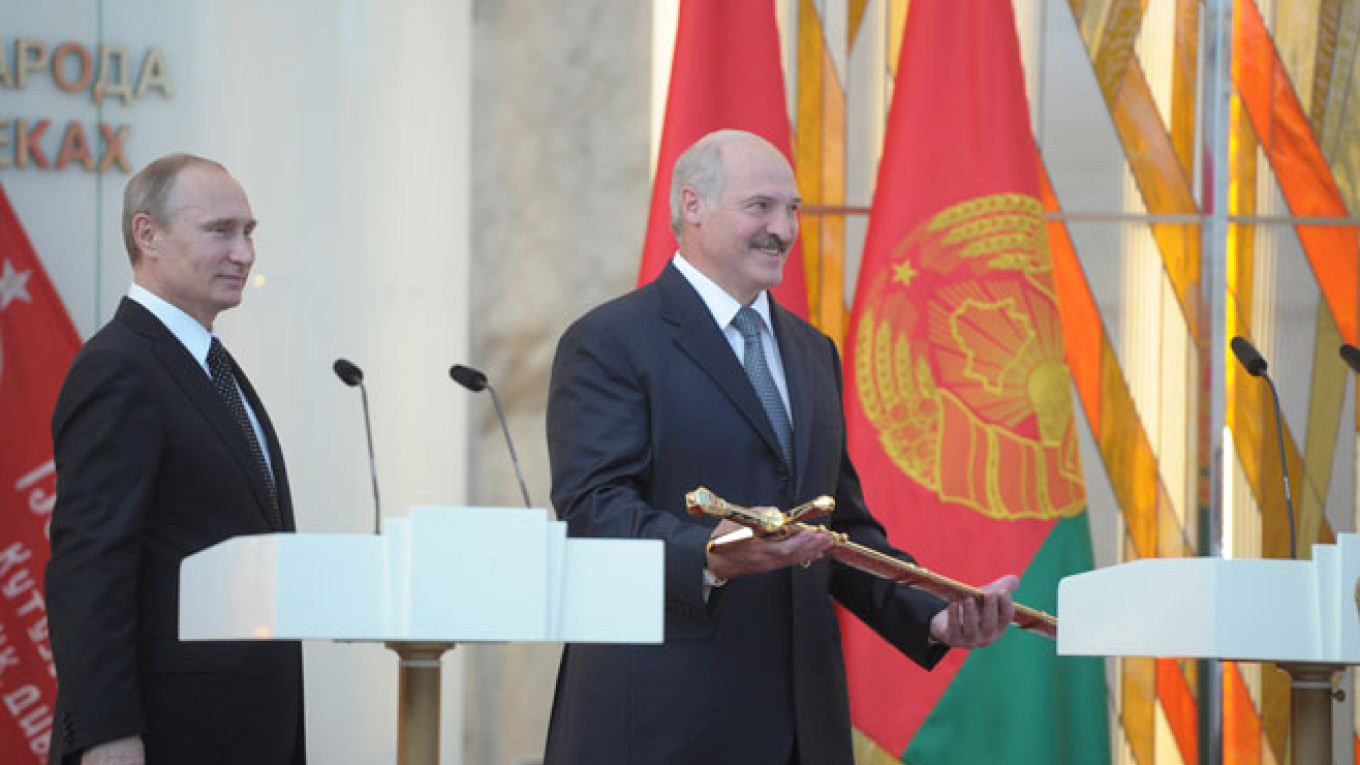When a young and relatively unknown member of the Belarussian parliament won the country's first presidential election in 1994, few political actors in the small former Soviet republic expected him to last for long.
He showed them. Thursday marked Alexander Lukashenko's 20th year as the president of Belarus.
The 16th longest-serving nonroyal national leader in the world, Lukashenko's rule appears to be as solid as ever despite the nay-saying Western observers and politicians that have slammed him for his human rights record and questioned his commitment to democracy.
As the decades have passed, Lukashenko, 59, has fine-tuned the image of a hard-edged and shrewd politician.
His confident and idiosyncratic style have earned him many nicknames. While his supporters universally refer to him as Batka — meaning daddy, members of the Belarussian opposition have demonstrated a preference for the colder fatherly reference of "agricultural führer."
Lukashenko's personality largely defines everything from popular culture to industrial manufacturing in Belarus today. To honor his anniversary, The Moscow Times has complied some of Lukashenko's most colorful quotes to shed light on his character and the country he rules.
Over the years, he has frequently been referred to by Western politicians and news reporters alike as "Europe's last dictator."
But things could apparently be worse for Lukashenko, who retorted in 2012 with reference to one such jab by Germany's then-Foreign Minister Guido Westerwelle, "Better to be a dictator than gay."? Westerwelle himself is openly gay.
More recently, he offered to share the title with his Russian counterpart President Vladimir Putin. "I told Putin that after the Crimea annexation, people might no longer call me Europe's last dictator," he said in an interview to Ukrainian television last March.
Speaking about the durability of his political career, Lukashenko told a Svoboda radio journalist during a news conference last year: "If people will elect me, then you will have Lukashenko for as many terms as you elect him. If, of course, health will allow him."
The aging president went on to challenge anyone who doubted his physical health to put their money where their mouths were: "If you have any doubts about my health, then [let's] take skates [and] skis, and tomorrow we will try. Let's run 10 kilometers, if you come first, than tomorrow you will be president."
In the wake of his third presidential election, Lukashenko went so far as to admit that he had forged previous election results.
"Yes, we falsified the [results of the] last election. I have already told this to Westerners. In fact, 93.5 percent [of ballots were] for President Lukashenko. People say this is not a European result, so we changed it to 86 percent. This truly happened," he told Ukrainian journalists in 2006.
Lukashenko has always staunchly defended the health of democracy and free assembly in his country.
"Look at what happens at demonstrations in Spain, Italy, France, Greece — they don't think twice about how to treat these situations," he told students at the Belarussian State University in 2012. "You pour tear gas and water on people every day. How many did you kill and crush?" he wondered. ?
Strong as his stance on democracy may be, it pales in comparison to his views on homosexuality and environmentalism.
"Thank God our church does not suffer from the infections that have crushed the Western church. We have heard it all: pedophilia, gayness, environmentalism — what the hell is going on out there! We are getting sick here too, so I think the Orthodox church and the state are not working well enough here. We cannot afford to lose a whole generation of people," he said at a meeting with Patriarch Kirill of the Russian Orthodox Church.
Overall, Lukashenko seems to be more lenient about lesbians than gays.
"Lesbians are bad, but I do not condemn them. As with gays, this is not within my understanding, I think it is absolutely unacceptable and negative," he told The Independent newspaper in 2012.
A Message from The Moscow Times:
Dear readers,
We are facing unprecedented challenges. Russia's Prosecutor General's Office has designated The Moscow Times as an "undesirable" organization, criminalizing our work and putting our staff at risk of prosecution. This follows our earlier unjust labeling as a "foreign agent."
These actions are direct attempts to silence independent journalism in Russia. The authorities claim our work "discredits the decisions of the Russian leadership." We see things differently: we strive to provide accurate, unbiased reporting on Russia.
We, the journalists of The Moscow Times, refuse to be silenced. But to continue our work, we need your help.
Your support, no matter how small, makes a world of difference. If you can, please support us monthly starting from just $2. It's quick to set up, and every contribution makes a significant impact.
By supporting The Moscow Times, you're defending open, independent journalism in the face of repression. Thank you for standing with us.
Remind me later.


